Most people only really think about the processes involved doing a PhD study when they are doing their own unique research project at one specific university. It is often only when talking to other PhD students at a conference or listening to their supervisors reminiscing about doing theirs at a different university and in a different time, that they realise there are important differences in processes between universities, and even across disciplines within universities. This is true both nationally and globally. These differences can exist at many different stages of the PhD and Bournemouth University academics have written about several of these differences within a national context (1-6). 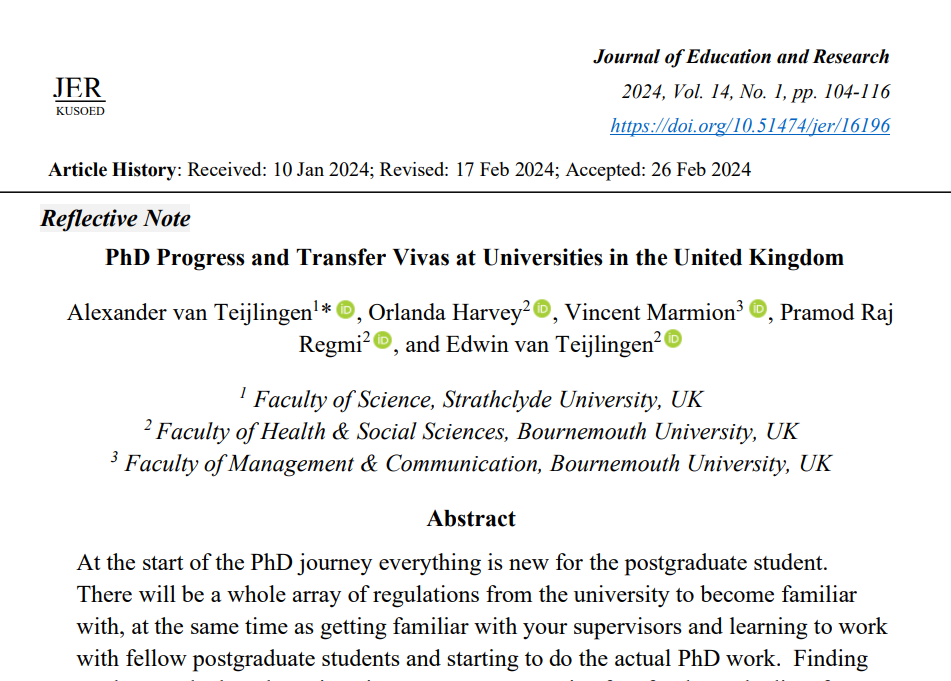
PhD aspects can differ from the start, e.g. the expected format of a PhD proposal (5) to the very end, e.g. possible outcomes of a viva (4), or whether the PhD includes clinical or practice components to help bridge the gap between academia and practice (2). Variations across universities also occur in the expected layout and format of the theses (1), or the way supervisors are expected to supervise by different universities (3), or the format or timing of transfer or progress viva(6).
 You might ask why this uniqueness of the postgraduate research journey matters? We argue that academics need to celebrate the diversity of the PhD process and of our postgraduate research students and recognise that excellent research can be achieved in different ways. A personalised process can ensure that postgraduate students are successful in achieving their goals.
You might ask why this uniqueness of the postgraduate research journey matters? We argue that academics need to celebrate the diversity of the PhD process and of our postgraduate research students and recognise that excellent research can be achieved in different ways. A personalised process can ensure that postgraduate students are successful in achieving their goals.
Dr. Orlanda Harvey, Prof. Vanora Hundley, Dr. Vincent Marmion, Dr. Pramod Regmi, Prof. Edwin van Teijlingen
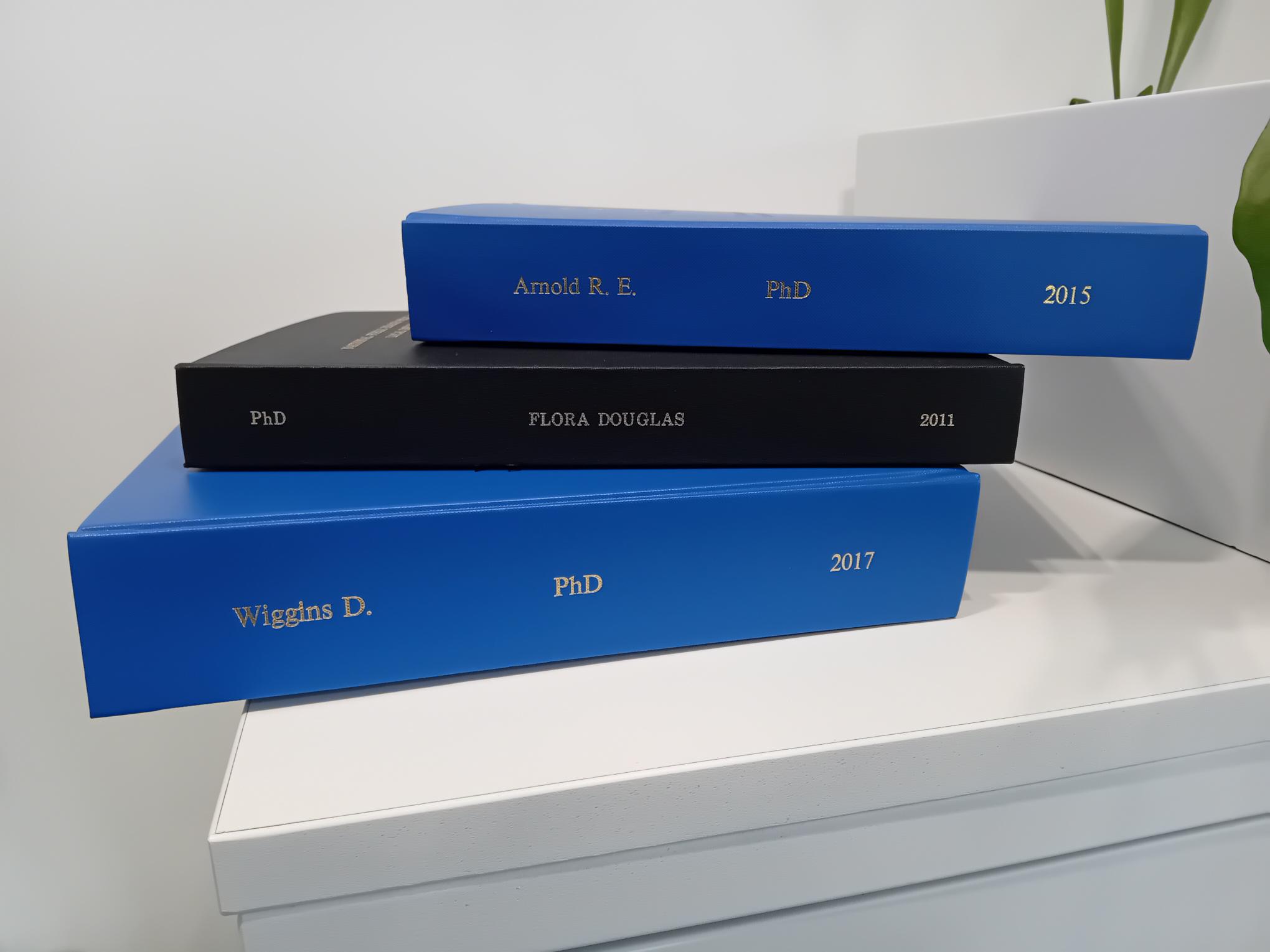
References:
- van Teijlingen E (2007) PhD theses: the pros and cons (letter), Times Higher Education Suppl. Issue 1808 (August 24th): 15.
- Way S, Hundley V, van Teijlingen E, Walton G, and Westwood G. (2016) Dr Know. RCM Midwives Spring 64-65.
- Regmi, P., Poobalan, A., Simkhada, P., van Teijlingen, E. (2021) PhD supervision in Public Health, Health Prospect: Journal of Public Health 20(1):1-4. https://www.nepjol.info/index.php/HPROSPECT/article/view/32735/28111
- van Teijlingen, E., Simkhada, B., Regmi, P., Simkhada, P., Hundley, V., Poudel, K.C. (2022) Reflections on variations in PhD viva regulations: “And the options are….”, Journal of Education and Research 12(2),61-74. https://doi.org/10.51474/jer.v12i2.624
- Wasti, S.P. Regmi, P.R., Simkhada, P., van Teijlingen, E., Hundley, V. (2022) Writing a PhD Proposal, In: Wasti, S.P., et al. (Eds.) Academic Writing and Publishing in Health & Social Sciences, Kathmandu, Nepal: Himal Books: 176-183.
- van Teijlingen, A., Marmion, V., Harvey, O., Regmi, P., van Teijlingen, E. (2024) PhD Progress and Transfer Vivas at Universities in the United Kingdom, Journal of Education and Research, 14(1): 104-116, https://doi.org/10.51474/jer/16196


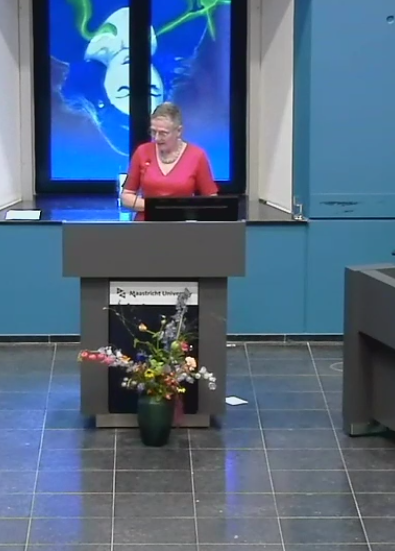
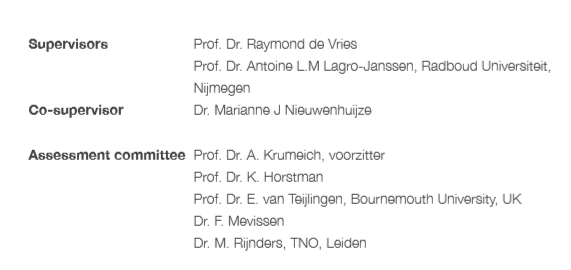
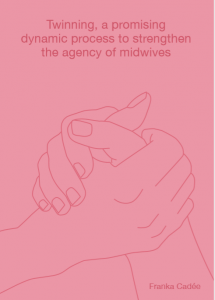











 SPROUT: From Sustainable Research to Sustainable Research Lives
SPROUT: From Sustainable Research to Sustainable Research Lives BRIAN upgrade and new look
BRIAN upgrade and new look Seeing the fruits of your labour in Bangladesh
Seeing the fruits of your labour in Bangladesh Exploring Embodied Research: Body Map Storytelling Workshop & Research Seminar
Exploring Embodied Research: Body Map Storytelling Workshop & Research Seminar Marking a Milestone: The Swash Channel Wreck Book Launch
Marking a Milestone: The Swash Channel Wreck Book Launch ECR Funding Open Call: Research Culture & Community Grant – Application Deadline Friday 12 December
ECR Funding Open Call: Research Culture & Community Grant – Application Deadline Friday 12 December MSCA Postdoctoral Fellowships 2025 Call
MSCA Postdoctoral Fellowships 2025 Call ERC Advanced Grant 2025 Webinar
ERC Advanced Grant 2025 Webinar Update on UKRO services
Update on UKRO services European research project exploring use of ‘virtual twins’ to better manage metabolic associated fatty liver disease
European research project exploring use of ‘virtual twins’ to better manage metabolic associated fatty liver disease